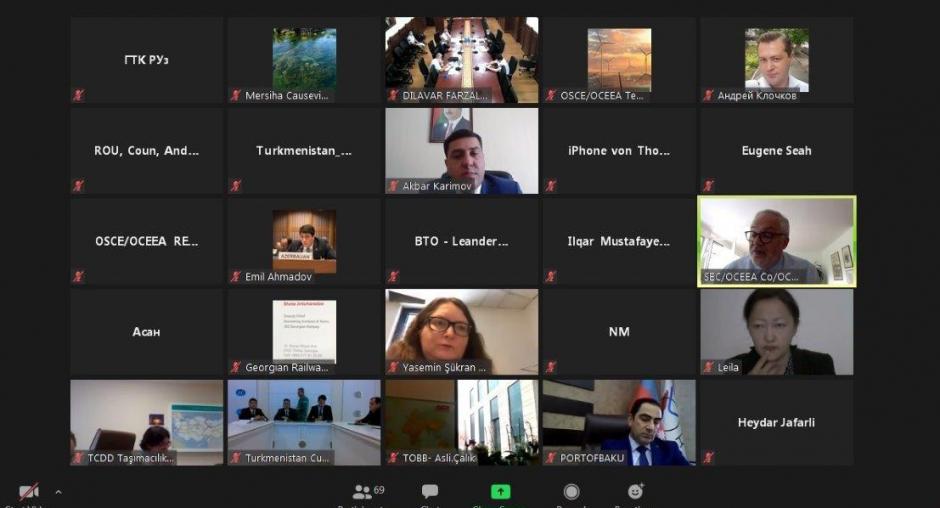Safer and sustainable supply chains connecting Central Asia and Europe focus of OSCE discussion on green ports and connectivity in Caspian Sea Region

Making supply chains, connecting Central Asia with Europe, safer, smarter and more sustainable was the focus of a virtual discussion of some 70 logistics and trade stakeholders from the private and public sectors from Central Asia and the Caspian and Black Sea region, on 19 June 2020.
Representatives of national railway and shipping companies, customs, freight forwarders and trade ministries participated in the first meeting of the Digital Route Working Group.
Technical experts presented the findings of a comprehensive feasibility study on “Promoting Green Ports and Connectivity in the Caspian Sea Region”. Phase one of the project is to create a common digital trade platform that connects all stakeholders, which would significantly improve speed, traceability and sustainability of cargo flows. “A common platform is a key solution to removing existing trade bottlenecks and improving regional connectivity,” said OSCE Co-ordinator for Economic and Environmental Affairs Vuk Zugić.
Austrian Rail Cargo announced a project partnership with the Office of the Co-ordinator of OSCE Economic and Environmental Activities (OCEEA) to promote digitalization and to solve current bottlenecks of its cargo operations in the region.
“I believe that this project can make a viable contribution to promote sustainable connectivity from Central Asia to Europe,” said Zugić. “We made the best use of today’s unique setting, discussing some concrete ideas for digitizing trade and increasing connectivity for the benefit of all.”
The second phase of the OSCE/OCEEA project will further improve connectivity through the promotion of renewable energy, energy efficiency and digital data exchange between logistics stakeholders and strengthen equal opportunities for women and men in the trade and logistics sector.
